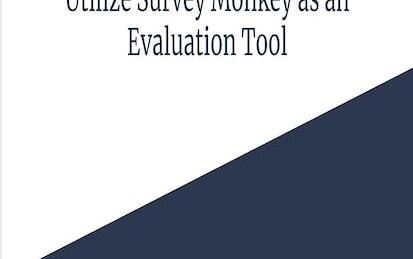

Our Courses

Dealing With Missing Data
This course will cover the steps used in weighting sample surveys, including methods for adjusting for nonresponse and using data external to the survey for calibration. Among the techniques discussed are adjustments using estimated response propensities, poststratification, raking, and general regression estimation. Alternative techniques for imputing values for missing items will be discussed. For both weighting and imputation, the capabilities of different statistical software packages will be covered, including R®, Stata®, and SAS®.
-
Course by

-
 Self Paced
Self Paced
-
 18 hours
18 hours
-
 English
English

Customer-Centric IT Strategy
Now more than ever, corporations are investing heavily in IT. The quality of these investments affect the daily work of millions, yet it’s not uncommon to see industry surveys where the failure rates for IT projects is over 50%. It’s possible to do better and it’s possible to do so consistently. In this two-week course, we’ll step through major challenges within corporate IT and how to address them with the disciplined use of design thinking, Lean Startup, and agile as a team framework.
-
Course by

-
 Self Paced
Self Paced
-
 3 hours
3 hours
-
 English
English

Create a Customer Service Survey in Microsoft Forms
Customer service surveys are often used by businesses to gain insights into how their customers perceive their business, service, or product. Microsoft Forms is a free online program that offers all of the tools needed to create and disseminate professional, high-quality surveys.
-
Course by

-
 Self Paced
Self Paced
-
 1 hour
1 hour
-
 English
English

Old Norse Mythology in the Sources
This course is an introduction to the religion of the Vikings as it is recorded in Old Norse and Scandinavian literature from the medieval period. You will learn about the different written sources and what they can teach us about pre-Christian religion in northern Europe in the Viking Age. The course surveys the primary collection of Old Norse poetry about the pre-Christian Scandinavian gods, the Poetic Edda. We will also work with the main collections of stories about the Old Norse gods in prose: Snorri Sturluson's Edda and Saxo's History of the Danes.
-
Course by

-
 Self Paced
Self Paced
-
 6 hours
6 hours
-
 English
English

Enjoyable Econometrics
The goal of this MOOC is to show that econometric methods are often needed to answer questions. A question comes first, then data are to be collected, and then finally the model or method comes in. Depending on the data, however, it can happen that methods need to be adapted. For example, where we first look at two variables, later we may need to look at three or more. Or, when data are missing, what then do we do? And, if the data are counts, like the number of newspaper articles citing someone, then matters may change too.
-
Course by

-
 Self Paced
Self Paced
-
 2 hours
2 hours
-
 English
English

Survey Data Collection and Analytics
This specialization covers the fundamentals of surveys as used in market research, evaluation research, social science and political research, official government statistics, and many other topic domains.
-
Course by

-
 Self Paced
Self Paced
-
 English
English

Implementing Parent Feedback with Google Forms
By the end of this project, you will have created a parent survey that you can send to your students’ parents at the end of each school year. Continued professional development is important to be the most effective and current teacher you can be. But we do not often receive the feedback we need to keep our growth going. Through this project, you will be ready to gain valuable feedback from parents, allowing you to discern areas of strength and growth for your future teaching.
-
Course by

-
 Self Paced
Self Paced
-
 3 hours
3 hours
-
 English
English

Measurement – Turning Concepts into Data
This course provides a framework for how analysts can create and evaluate quantitative measures. Consider the many tricky concepts that are often of interest to analysts, such as health, educational attainment and trust in government. This course will explore various approaches for quantifying these concepts. The course begins with an overview of the different levels of measurement and ways to transform variables. We’ll then discuss how to construct and build a measurement model. We’ll next examine surveys, as they are one of the most frequently used measurement tools.
-
Course by

-
 Self Paced
Self Paced
-
 English
English

Google Sheets - Advanced Topics
This course builds on some of the concepts covered in the earlier Google Sheets course. In this course, you will learn how to apply and customize themes In Google Sheets, and explore conditional formatting options. You will learn about some of Google Sheets’ advanced formulas and functions. You will explore how to create formulas using functions, and you will also learn how to reference and validate your data in a Google Sheet. Spreadsheets can hold millions of numbers, formulas, and text. Making sense of all of that data can be difficult without a summary or visualization.
-
Course by

-
 Self Paced
Self Paced
-
 3 hours
3 hours
-
 English
English

Data Collection: Online, Telephone and Face-to-face
This course presents research conducted to increase our understanding of how data collection decisions affect survey errors.
-
Course by

-
 Self Paced
Self Paced
-
 21 hours
21 hours
-
 English
English

Utilize Survey Monkey as an Evaluation Tool
Surveys and evaluations can be used to reflect on your training or customer experiences. The data you collect can help to adjust your training and you can find out directly from your employees if they are satisfied. Customers can let you know what they are thinking and what they actually want.
-
Course by

-
 Self Paced
Self Paced
-
 2 hours
2 hours
-
 English
English

ESG Data & Accountability
In this course, we’ll introduce students with basic knowledge of traditional financial products to data-driven resources they can use to complement their fundamental analysis.
-
Course by

-
 Self Paced
Self Paced
-
 20 hours
20 hours
-
 English
English

Identifying Community Needs for Public Library Management
Learn how to conduct research, surveys, and interviews as well as how to analyze data to better assess the local needs and wants of a public library community.
-
Course by

-
 Self Paced
Self Paced
-
 English
English

FinTech Foundations and Overview
Our primary goal is to help you to understand FinTech and to become more confident and persuasive in your ability to analyze and make recommendations to executives within the finance industry regarding how to react to these changes. This FIRST MOOC ON FINTECH IN ASIA-PACIFIC offered by HKUST presents the insight of several professors from the top business school in Asia as well as perspectives from industry professionals.
-
Course by

-
 Self Paced
Self Paced
-
 15 hours
15 hours
-
 English
English

Finance for Non-Finance Professionals
This short course surveys all the major topics covered in a full semester MBA level finance course, but with a more intuitive approach on a very high conceptual level. The goal here is give you a roadmap and framework for how financial professional make decisions. We will cover the basics of financial valuation, the time value of money, compounding returns, and discounting the future. You will understand discounted cash flow (DCF) valuation and how it compares to other methods.
-
Course by

-
 Self Paced
Self Paced
-
 14 hours
14 hours
-
 English
English

Quantitative Research
In this course, you will obtain some insights about marketing to help determine whether there is an opportunity that actually exists in the marketplace and whether it is valuable and actionable for your organization or client. Week 1: Assess methods available for creating quantitative surveys, along with their advantages and disadvantages. Identify the type of questions that should be asked and avoid unambiguous survey questions. Week 2: Design, test, and implement a survey by identifying the target audience and maximizing response rates.
-
Course by

-
 Self Paced
Self Paced
-
 17 hours
17 hours
-
 English
English

Bioinformatic Methods I
Large-scale biology projects such as the sequencing of the human genome and gene expression surveys using RNA-seq, microarrays and other technologies have created a wealth of data for biologists. However, the challenge facing scientists is analyzing and even accessing these data to extract useful information pertaining to the system being studied. This course focuses on employing existing bioinformatic resources – mainly web-based programs and databases – to access the wealth of data to answer questions relevant to the average biologist, and is highly hands-on.
-
Course by

-
 Self Paced
Self Paced
-
 20 hours
20 hours
-
 English
English

Bioinformatic Methods II
Large-scale biology projects such as the sequencing of the human genome and gene expression surveys using RNA-seq, microarrays and other technologies have created a wealth of data for biologists. However, the challenge facing scientists is analyzing and even accessing these data to extract useful information pertaining to the system being studied. This course focuses on employing existing bioinformatic resources – mainly web-based programs and databases – to access the wealth of data to answer questions relevant to the average biologist, and is highly hands-on.
-
Course by

-
 Self Paced
Self Paced
-
 19 hours
19 hours
-
 English
English

Meaningful Marketing Insights
With marketers are poised to be the largest users of data within the organization, there is a need to make sense of the variety of consumer data that the organization collects. Surveys, transaction histories and billing records can all provide insight into consumers’ future behavior, provided that they are interpreted correctly. In Introduction to Marketing Analytics, we introduce the tools that learners will need to convert raw data into marketing insights.
-
Course by

-
 Self Paced
Self Paced
-
 10 hours
10 hours
-
 English
English



